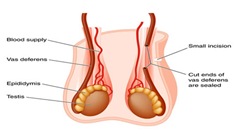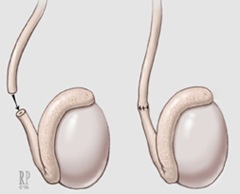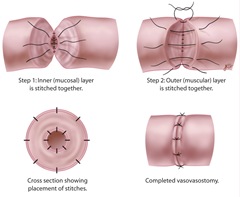Wondering what are the top questions you should ask before undergoing a vasectomy reversal? Considering a vasectomy reversal is a major decision that involves not only your reproductive health but also your long-term family planning goals. To make the most informed choice, it’s essential to have a clear understanding of the procedure, risks, outcomes, and whether you’re a good candidate.

Understanding the Procedure
Before committing to surgery, you should understand what the procedure entails and how it fits into your specific situation.
- What exactly is a vasectomy reversal, and how is it performed? This will help you understand the difference between a vasovasostomy and a vasoepididymostomy, the two primary reversal techniques.
- How do you determine which type of reversal I need? Intraoperative findings determine whether the vas deferens can be directly reconnected or if a more complex bypass is needed.
- How long does the procedure take, and will I need anesthesia? Most vasectomy reversals are outpatient procedures that last 2–4 hours and are performed under general anesthesia.
Evaluating Your Candidacy
Not everyone is an ideal candidate for vasectomy reversal. Certain factors can influence your suitability and success rates.
- How long ago was my vasectomy? The more recent your vasectomy, the higher the likelihood of success. Ask how your timeline affects your outcome.
- Am I a good candidate for vasectomy reversal? The surgeon will evaluate your medical history, physical condition, and reproductive goals to determine your candidacy.
- Should my partner be evaluated for fertility as well? Fertility is a shared factor, so assessing the female partner’s reproductive health may influence your decision.
Understanding the Success Rates
Knowing what to expect can help you prepare mentally and emotionally for the process.
- What are the success rates for vasectomy reversal in my case? Ask how your age, the time since your vasectomy, and other personal factors affect your specific success rate.
- How soon after surgery can we try to conceive? Most patients are advised to wait 6–8 weeks before testing for sperm in the ejaculate and several months before attempting conception.
- What happens if the reversal is unsuccessful? Inquire about other options such as sperm retrieval and IVF in case the reversal does not result in pregnancy.
Reviewing Risks and Recovery
Any surgical procedure carries some risk, and it’s important to be prepared.
- What are the risks and possible complications? These may include infection, bleeding, or scarring. Discuss how risks are minimized and what symptoms to watch for post-operatively.
- What is the recovery time, and are there any activity restrictions? Most patients resume normal activities in 1–2 weeks, but should avoid strenuous exercise and sexual activity for a short period.
- What kind of post-operative care do you provide? Clarify whether follow-up visits, semen analysis, and additional evaluations are included in your care plan.
Financial and Logistical Considerations
Planning ahead can help avoid surprises when it comes to costs and logistics.
- What does the procedure cost, and is it covered by insurance? Vasectomy reversal is often not covered by insurance. Ask for a detailed cost breakdown and payment options.
- Where is the procedure performed? Find out if it is done in an accredited surgical center or hospital, and whether it’s an outpatient or inpatient procedure.
- How experienced are you with vasectomy reversals? Experience matters. Choose a surgeon who specializes in microsurgery and performs vasectomy reversals regularly.
Conclusion: Be an Informed Patient
The more informed you are before undergoing a vasectomy reversal, the more empowered you’ll feel about your decision. Asking these questions can help you evaluate your options, manage expectations, and choose a qualified specialist who aligns with your needs and goals.
Schedule a Consultation
If you’re considering vasectomy reversal, reach out for expert guidance and personalized care:
Yaniv Larish, MD
4 East 76th Street
New York, NY 10021
Phone: 646-862-5500
Dr. Yaniv Larish offers advanced microsurgical vasectomy reversal with a compassionate, patient-first approach. Call today to schedule your consultation.



